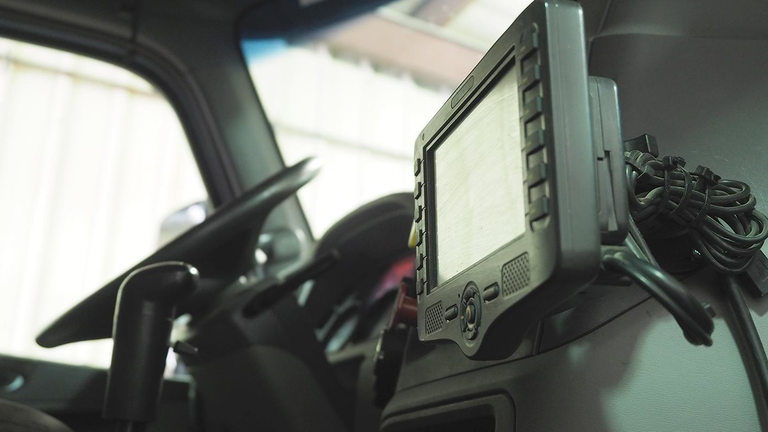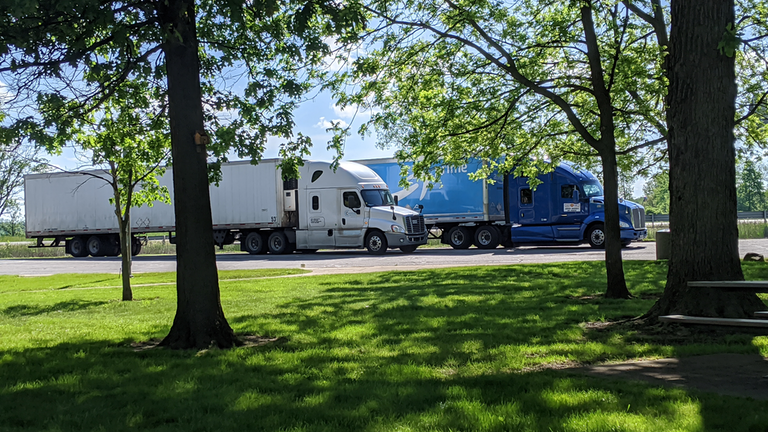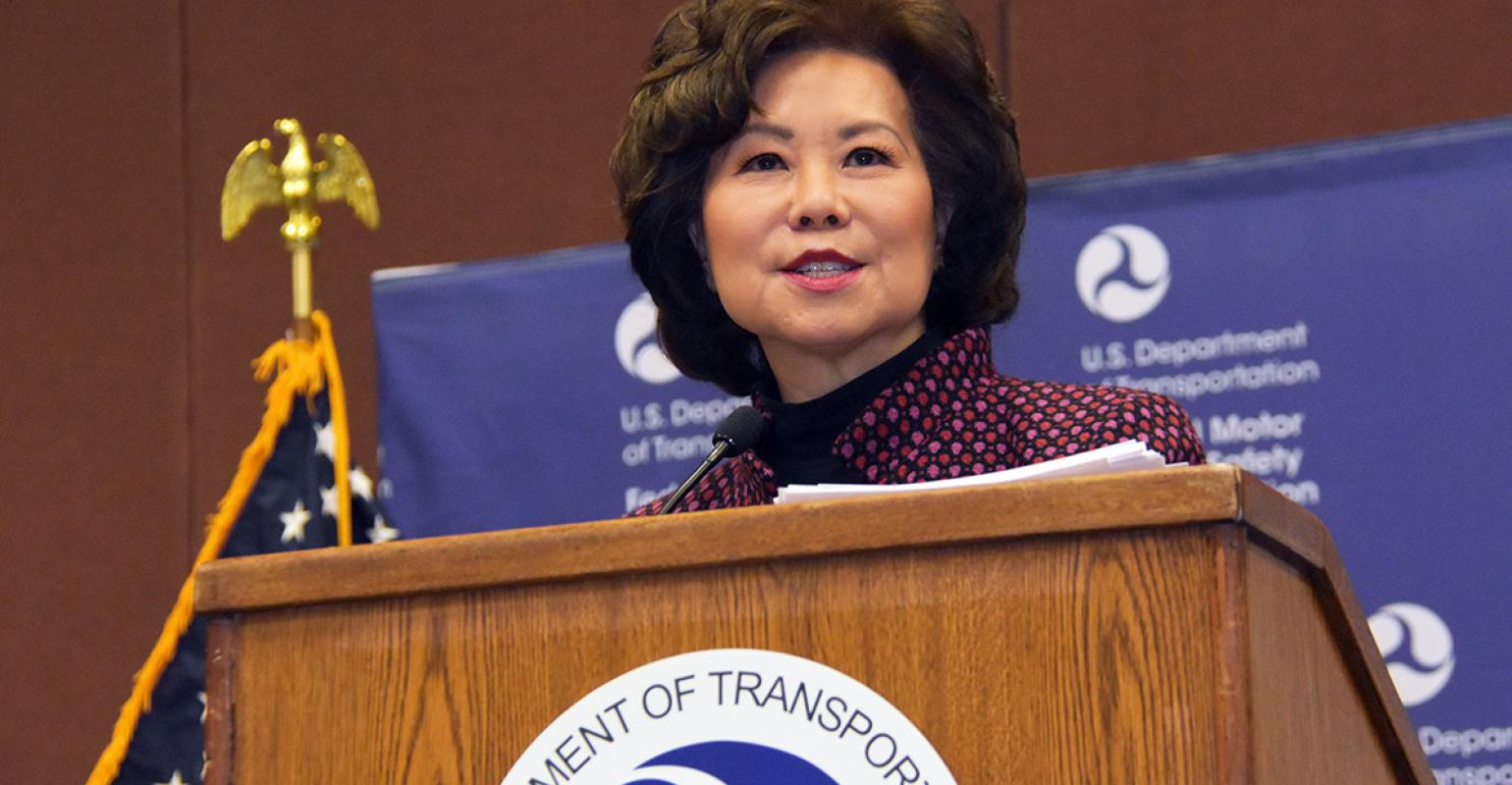What drivers need to know about new HOS rules
In just over a month — at 12:01 a.m. EDT on Tuesday, Sept. 29 — revised hours-of-service rules go into effect for commercial drivers across the country. The new rules create more flexibility for drivers while keeping a focus on highway safety, according to Joseph DeLorenzo, the acting associate administrator for enforcement at the Federal Motor Carrier Safety Administration.
Continue reading “What drivers need to know about new HOS rules”
Why the delay in FMCSA’s proposed HOS changes?
Fleet Owner contacted the Federal Motor Carrier Safety Administration (FMCSA) seeking clarity. We were given a contact person to shed light on the situation, left a message, and are waiting to hear back. If we do so, this story will be updated. The public comment period which was set to go through Sept. 16, was based on the July 31 information release, so that will likely be pushed back as well.
Fleet Owner also sought comment from The White House Office of Management and Budget (OMB). In a return email, Chris Jennings, OMB press secretary, wrote that the HOS rules “are currently under review by OIRA (Office of Information and Regulatory Affairs). OMB historically does not comment on rules until review is finalized.”
Two academicians and trucking experts, one an author on the industry and the other with a book in progress, provided their views on the situation.
Steve Viscelli is a Ph.D., sociologist and author of The Big Rig: Trucking & the Decline of the American Dream. He spent over a decade studying the industry and interviewing truckers. He obtained a CDL and drove full-time for six months to experience a driver’s life. He is a Senior Fellow at the Kleinman Center for Energy Policy at the University of Pennsylvania.
“On the other end, we have drivers who a couple weeks ago had never seen the inside of a truck and are now living out of one for weeks at a time working almost continuously until they are exhausted. Developing a single set of rules to make the job safer across that spectrum is complex to say the least. That’s the legitimate challenge of hours of service regulations.
“The second reason is completely different. Huge numbers of hours are still not recorded accurately (non-driving on-duty time). Carriers will continue to build those illegal hours into their process. That is just how the industry has worked for decades. The industry and drivers have for so long disregarded both the letter and the spirit of hours of service that the basic foundation of the system is rotten.
“Tweaking the rules isn’t going to change that. We need to completely rethink HOS and, most importantly, build a system that, rather than imposing simplistic rules, addresses the central importance of the economics of driver pay, experience and safety.”
Karen Levy is an assistant professor of Information Science at Cornell University. She has written about trucking for the L.A. Times and other periodicals and is writing a book called Data Driven: Truckers, Automation, and the New Workplace Surveillance. She has no knowledge of when the new HOS rules will be released but has opinions on what they should contain.
“By all accounts, any HOS reforms need to give truckers the flexibility they need to do their jobs safely and efficiently,” she said. “Truckers have the best and most relevant expertise to structure their work in response to the conditions around them—the weather, the traffic, their fatigue level and physical needs. One-size-fits-all HOS rules are hard for truckers to stomach because they’re inflexible to these variables, especially in the ELD era. Things like eliminating the 30-minute rest break or returning to a split sleeper birth would help truckers adapt the rules to the many contingencies they face on the road.”
In FMCSA’s Advance Notice of Proposed Rulemaking published Aug. 23, 2018, four questions were asked publicly so it could better define what trucking industry stakeholders thought. The more than 5,200 responses are being considered as the DOT prepares its proposals. The questions were:
- Should the agency expand the current 100 air-mile “short-haul” exemption from 12 hours on duty to 14 hours on duty, to be consistent with the workday rules for long-haul truck drivers?
- Is there adequate flexibility in the adverse driving exception that currently expands driving time by up to two hours?
- If the 30-minute rest break after eight hours of driving did not exist, would drivers obtain adequate rest breaks throughout a daily driving period to relieve fatigue?
- Do you have information that would support reinstating the option for splitting up the required 10-hour off-duty rest break for drivers operating trucks with sleeper-berth compartments?
This article was originally published by American Trucker.
Bill would broaden ‘agricultural commodity’ definition for Ag hauler HOS exemption
These are questions that trucking companies hauling agricultural goods and commodities have long asked: what exactly counts as an agricultural commodity to be transporting where the driver is then exempted from the federal Hours of Service (HOS) regulations and by extension, having to use electronic logging devices (ELDs), and why are some agricultural goods left out? Rep. Austin Scott (R-GA) on Tuesday reintroduced the Agricultural Trucking Relief Act (H.R. 1673) to clarify the definition of “agricultural commodity” to include a broader range of agricultural products.
FMCSA schedules HOS listening session this weekend
The Federal Motor Carrier Safety Administration (FMCSA) will hold a public listening session Saturday, Sept. 22 on potential changes to its Hours of Service (HOS) rules for commercial truck drivers. The listening session takes place at the National Automobile Museum in Reno, NV from 10 a.m.-noon PDT.
A session that was to be held last Friday, Sept. 14 in Washington, DC was canceled due to severe weather from Hurricane Florence. Additional listening sessions are scheduled for Friday, Sept. 28 in Joplin, MO and Tuesday, Oct. 2 in Orlando.
Continue reading “FMCSA schedules HOS listening session this weekend”
As Florence looms, drivers providing relief in broad region exempted from HOS, safety rules
The Federal Motor Carrier Safety Administration (FMCSA) has exempted motor carriers and drivers involved in Hurricane Florence relief efforts in 13 states and the District of Columbia from Hours of Service and other parts of the Federal Motor Carrier Safety Regulations, or FMCSRs, in an extended regional emergency declaration.
Department of Transportation explores HOS rule changes
The agency is initiating the process to potentially modify Hours of Service rules now in place for drivers.
On August 23, 2018, the Federal Motor Carrier Safety Administration (FMSCA) published a rulemaking process that is aimed at reforming specific areas of the current hours-of-service regulation. The hours-of-service (HOS) regulation was enacted to limit the total operating hours a commercial truck driver works on duty. The FMCSA will be examining four areas of the existing regulation. Once decided, the new rules, will be published as an Advanced Notice of Proposed Rulemaking.
Continue reading “Department of Transportation explores HOS rule changes”
A race against the clock: Truckers cite problems with HOS rules
Continue reading “A race against the clock: Truckers cite problems with HOS rules”
FMCSA Administrator Ray Martinez gets an earful at Listening Session
Ray Martinez, newly installed administrator of the FMCSA and on the job for only 4 weeks, asked the audience for input at a Listening Session on Friday at the Mid-America Trucking Show, and what he got was passion, emotion and pointed fingers.
Continue reading “FMCSA Administrator Ray Martinez gets an earful at Listening Session”













